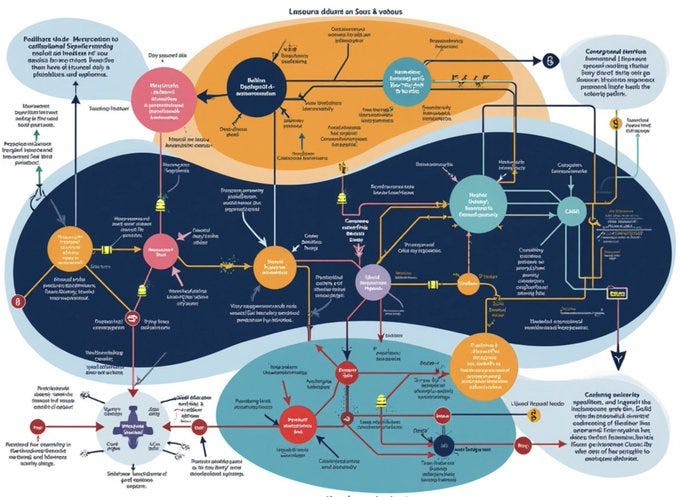Concepts: Systems
Packing for Polymathon!
Systems are interconnected groups of elements that operate according to specific rules, forming a unified whole.
They are characterized by their structure, functions, behavior, and interconnectivity, and are influenced by their surrounding environment.
Systems science, a multidisciplinary field, seeks to understand these complex systems in nature and society, viewing the world as a system of systems and applying its principles across various domains including psychology, biology, engineering, and social sciences.
Systems thinking offers a holistic approach to comprehending the world's complexity by focusing on wholes and relationships rather than individual parts. This perspective has been utilized to explore and develop effective actions in complex contexts, enabling systems change.
Systems theory, a key component of this approach, studies cohesive groups of interrelated, interdependent components, emphasizing that a system is "more than the sum of its parts" due to synergy and emergent behavior.
The goals of systems theory include modeling a system's dynamics, constraints, and relations, as well as identifying principles that can be applied to other systems across various fields.
Systems can influence each other, with changes in one component potentially affecting others or the entire system. For adaptive systems, growth and adaptation depend on how well they engage with their environment and other contextual factors.
Understanding these interactions and patterns of behavior is crucial for predicting changes and optimizing system performance.


